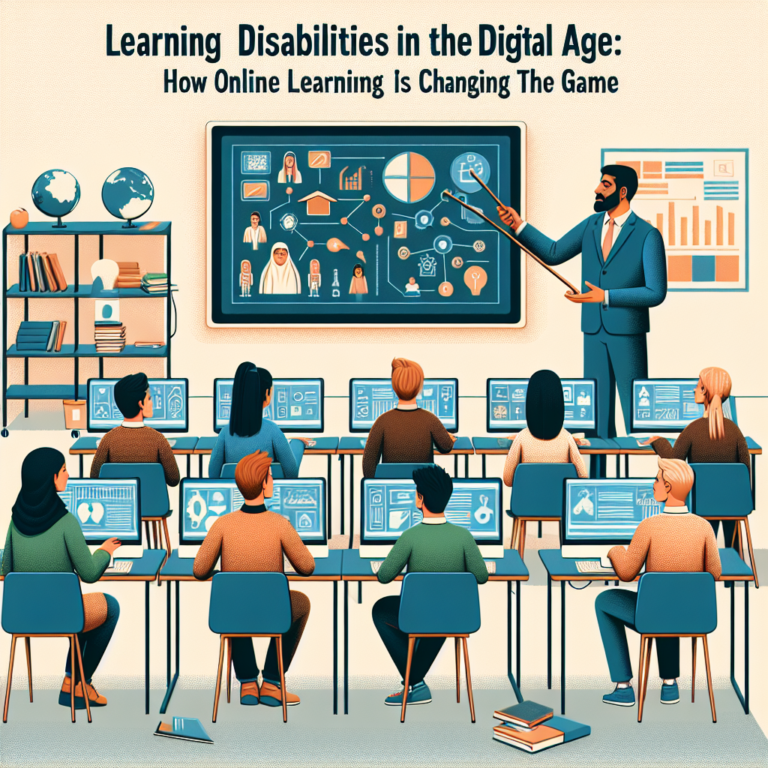
Introduction
In a world awash with challenges and uncertainties, it becomes all too easy to find ourselves engulfed in crises—be it personal, social, or even global. The dichotomy between chaos and clarity stands ever so pronounced, reminding us that even the darkest moments can lead to profound transformations. "From Crisis to Clarity: How Effective Intervention Can Transform Lives" is not just a catchy phrase; it embodies the potential for positive change that stems from strategic actions during turbulent times. This journey from despair to understanding can redefine not only individual lives but also entire communities.
In this article, we will explore the mechanisms of effective intervention, highlight the pivotal role it plays in transforming lives, and provide illuminating case studies that demonstrate the power of this process. Whether you’re a professional in the field of mental health, education, social work, or simply someone seeking understanding, this knowledge will empower you to make meaningful changes when faced with crisis.
Understanding Crisis: The Catalyst for Change
What is a Crisis?
A crisis is essentially a turning point, a critical moment where significant change is possible. It can manifest in various forms: mental health issues, substance abuse, domestic violence, financial ruin, and more. A crisis can lead to despair, but it can also facilitate personal growth and transformation.
The Role of Effective Intervention
Effective intervention is a structured approach designed to provide support and redirect individuals during their toughest moments. The key components of any effective intervention include:
- Timeliness: Acting promptly is critical. The longer an individual remains in crisis, the harder it is to enact change.
- Empathy and Support: Building trust and showing compassion can create a safe space for individuals to explore their feelings and options.
- Goal-Oriented Strategies: Interventions should aim to set clear, attainable goals that guide individuals from their current situation towards a vision of a more positive future.
Understanding what constitutes a crisis, along with the powerful impact of effective intervention, lays the groundwork for exploring how this process can indeed transform lives.
Case Studies: Real-Life Transformations
Case Study 1: Mental Health Awareness and Intervention
In a large urban center, a young woman named Sarah grappled with severe depression following the unexpected death of her mother. Alone and isolated, she spiraled into a crisis of hopelessness. Fortunately, a compassionate friend recognized the signs and initiated an effective intervention. They reached out to mental health professionals, arranged for therapy sessions, and encouraged Sarah to join a support group.
Analysis:
This timely intervention proved transformative. Within months, Sarah transitioned from a dark place to one filled with understanding and community support. The structured approach not only provided her the tools to cope but also helped her discover new strengths and aspirations.
Case Study 2: Substance Abuse Recovery
John, a 35-year-old father of three, faced addiction to opiates. His crisis reached a peak when he lost his job and subsequently endangered his children’s welfare. Through a community outreach program, an effective intervention was initiated involving counselors and addiction specialists who worked with John.
Analysis:
This intervention included both immediate support (rehabilitation) and long-term plans (employment assistance and family counseling). Over time, John emerged from his crisis with renewed vigor, reestablishing relationships with his family and community.
Case Study 3: Domestic Violence Support
Maria was in a dangerous relationship that left her feeling trapped and powerless. Through an intervention by a local shelter, she received the support necessary to leave her situation. Counselors helped her find security, and legal aid was provided to address custody concerns.
Analysis:
The effectiveness of this intervention lay in its holistic approach—addressing physical safety, legal rights, and emotional well-being. Maria’s courage to seek help and the empowering support she received allowed her to reclaim her life.
The Process of Effective Intervention
Planning an Intervention
Effective interventions should always be strategically planned. The following steps outline a typical approach:
- Identify the Problem: Understand the nuances of the crisis at hand.
- Gather a Support Team: Involve friends, family, or professionals who can provide different perspectives and resources.
- Set Clear Goals: Establish what success looks like for everyone involved.
- Choose the Right Time and Place: Ensure the environment is safe and conducive to open dialogue.
- Communicate: Use clear, empathetic language to address the situation.
Tools and Techniques
Utilizing various tools can amplify the efficacy of any intervention:
- Cognitive Behavioral Techniques: These can help individuals reframe negative thoughts and promote healthier coping mechanisms.
- Motivational Interviewing: This strategy encourages individuals to explore their ambivalence towards change, fostering a stronger desire to pursue positive actions.
- Peer Support Networks: Encouraging connections with others who have experienced similar crises can offer invaluable insights and support.
Challenges in Effective Intervention
While effective intervention can transform lives, it is not without challenges. Common obstacles include:
- Resistance to Change: Individuals may feel overwhelmed and resistant, making it hard for them to accept help.
- Access to Resources: Many communities lack sufficient resources to provide adequate support, which can hinder recovery.
- Stigma: The stigma surrounding mental health and addiction continues to act as a barrier for many seeking help.
Affordable and Effective Interventions
Many varieties of effective interventions are affordable and accessible:
- Online Support Groups: These platforms can provide anonymity and community connection.
- Local Nonprofits: Many organizations offer free programs for counseling, support, and education.
- Workshops and Seminars: Community events may offer practical strategies for coping and problem-solving.
Conclusion: From Crisis to Clarity
The journey from crisis to clarity is not just a slogan; it is a testament to human resilience and the transformative power of effective intervention. With timely support, empathy, and strategic planning, individuals can navigate their darkest hours and emerge stronger, more insightful, and with renewed purpose.
As you reflect on your own experiences or observations of crises, consider the role you can play in fostering transformation—be it as a friend, family member, colleague, or community leader. Your actions can help others embrace the journey from crisis to clarity, as together, we forge a path towards sustainable change and lasting hope.
FAQs
1. What is the first step to take during a crisis?
Begin by assessing the situation. Understanding the nature of the crisis will guide you in reaching out to the appropriate resources or individuals who can assist in the intervention.
2. How do I know if an intervention is needed?
If you observe signs of distress, substance abuse, or any behavior that significantly deviates from the individual’s norm, it may signal the need for an intervention.
3. Can interventions be effective for everyone?
While not every intervention may succeed initially, the strategic approach increases the likelihood of success. Each individual’s journey is unique, and persistence is key.
4. What role does mental health education play in intervention?
Mental health education equips both the interveners and the individuals in crisis with the knowledge needed to understand the emotional and psychological aspects of their situations. This understanding can foster empathy and informed decision-making.
5. Where can I find help for a friend in crisis?
Reach out to local mental health services, hotlines, or community organizations that specialize in crisis intervention. They can provide guidance and resources tailored to the specific situation.
By recognizing the weight of the phrase "From Crisis to Clarity: How Effective Intervention Can Transform Lives," we can foster hope and empowerment. Together, we can build a supportive framework that not only uplifts those in distress but transforms communities as a whole.

















